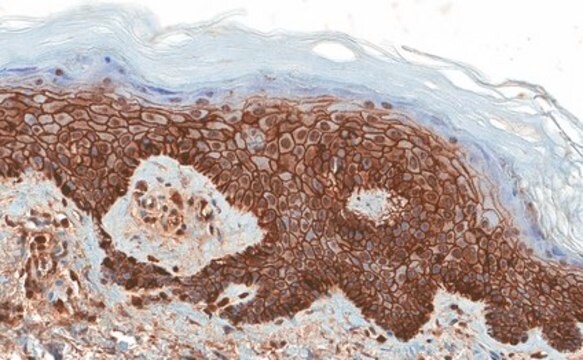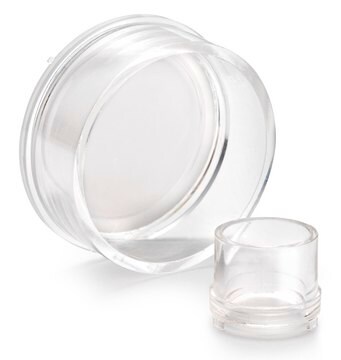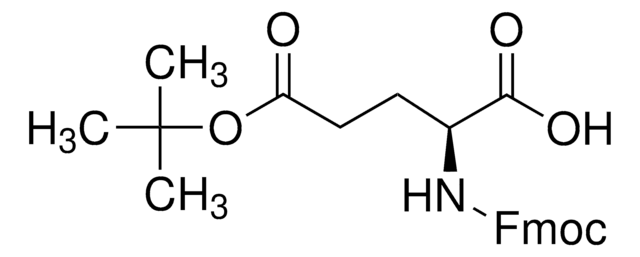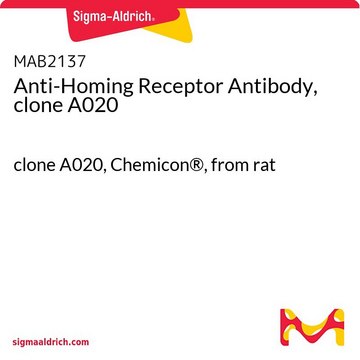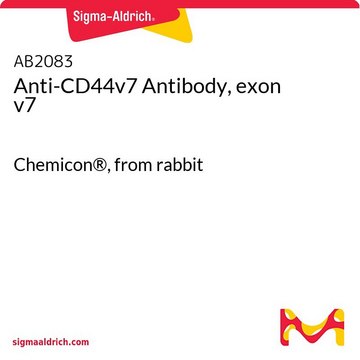AB2080
Anti-CD44v6 Antibody, exon v6
Chemicon®, from rabbit
Sinónimos:
Anti-CDW44, Anti-ECMR-III, Anti-HCELL, Anti-HUTCH-I, Anti-IN, Anti-LHR, Anti-MC56, Anti-MDU2, Anti-MDU3, Anti-MIC4, Anti-Pgp1
About This Item
Productos recomendados
biological source
rabbit
Quality Level
antibody form
purified immunoglobulin
antibody product type
primary antibodies
clone
polyclonal
species reactivity
human, canine, mouse, bovine, pig, rabbit
manufacturer/tradename
Chemicon®
technique(s)
ELISA: suitable
flow cytometry: suitable
immunocytochemistry: suitable
immunohistochemistry: suitable (paraffin)
immunoprecipitation (IP): suitable
western blot: suitable
NCBI accession no.
UniProt accession no.
shipped in
wet ice
target post-translational modification
unmodified
Gene Information
human ... CD44(960)
Specificity
Immunogen
Application
Flow Cytometry: 1:500-1:1000
Immunofluorescence: 1:100-1:200
Immunohistostaining of paraffin embedded tissue: 1:150-1:250
Immunoprecipitation: 1:100-1:200
Western Blotting 1:5000-1:10,000
RIA: 1:5,000
Optimal working dilutions must be determined by the end user.
Cell Structure
Adhesion (CAMs)
Linkage
Physical form
Storage and Stability
Other Notes
Legal Information
Disclaimer
¿No encuentra el producto adecuado?
Pruebe nuestro Herramienta de selección de productos.
Storage Class
10 - Combustible liquids
wgk_germany
WGK 2
flash_point_f
Not applicable
flash_point_c
Not applicable
Certificados de análisis (COA)
Busque Certificados de análisis (COA) introduciendo el número de lote del producto. Los números de lote se encuentran en la etiqueta del producto después de las palabras «Lot» o «Batch»
¿Ya tiene este producto?
Encuentre la documentación para los productos que ha comprado recientemente en la Biblioteca de documentos.
Nuestro equipo de científicos tiene experiencia en todas las áreas de investigación: Ciencias de la vida, Ciencia de los materiales, Síntesis química, Cromatografía, Analítica y muchas otras.
Póngase en contacto con el Servicio técnico
